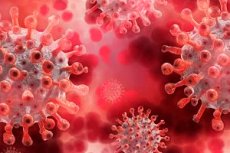New publications
How persistent is immunity after coronavirus infection?
Last reviewed: 02.07.2025

All iLive content is medically reviewed or fact checked to ensure as much factual accuracy as possible.
We have strict sourcing guidelines and only link to reputable media sites, academic research institutions and, whenever possible, medically peer reviewed studies. Note that the numbers in parentheses ([1], [2], etc.) are clickable links to these studies.
If you feel that any of our content is inaccurate, out-of-date, or otherwise questionable, please select it and press Ctrl + Enter.

Experts have stated that unvaccinated people who have recovered from COVID-19 may become ill again in as little as 3 months. Immunity after an illness of any severity is not stable.
This feature of the coronavirus infection was reported by employees of the Yale College of Public Health and the University of North Carolina at Charlotte. But with vaccinated people, the situation is different: their immune protection is more stable and long-lasting.
Experts analyzed information about patients who were re-infected with COVID-19 viruses. As a result, they identified the most likely risks. It was found that the pathogens of coronavirus infection are able to adapt and not die even in potentially dangerous conditions. In addition, the infectious agent can again easily enter the body - for example, if a person's immune defense is weakened, or the immune system has not fully recovered after the first illness.
The scientists performed a phylogenetic assessment of individual genes and reconstructed a molecular phylogeny with the maximum recreated probability of human infection with coronavirus infection. Such phylogeny helped to compare the levels and quality of antibodies, check the data on re-infection with endemic coronaviruses. Then the researchers analyzed various human conditions to estimate the expected decrease in the level of antibodies at different periods of time, determine the probability of re-infection. As a result, the following information was obtained: re-infection with coronavirus in an endemic environment can occur within a period of 3 months to 5 years after the maximum surge of antibodies. The average indicator is 16 months.
The period when a person can be infected again is a very important indicator for the entire public health. Since the pandemic spread of coronavirus infection continues, relapses of infection are likely to be observed everywhere. Scientists strongly recommend: in order to contain the transmission of the pathogen, including among people who have recovered, it is necessary to direct all efforts to accelerate vaccination. This is the only way to prevent morbidity and mortality from COVID-19. In general, according to experts, the risk of re-infection largely depends on the state of the human immune system, the mass penetration of the pathogen into the body, cross-immunity, age category, etc. Unfortunately, during the study, scientists were unable to cover all of these factors and their interactions. However, the work will continue, and soon medicine will be able to make forecasts and model epidemiology, warn of possible consequences and prevent re-infections.
The full study is available on The Lancet
